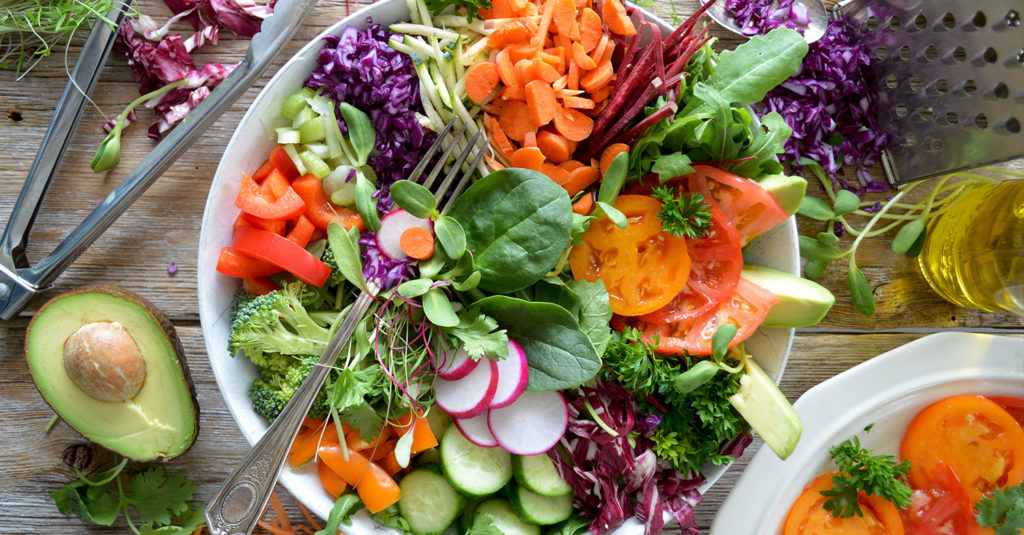We’re three days into the New Year and it’s at least possible that for many, your resolutions have already faltered. Perhaps on Jan 1 you felt ‘fragile’ after a late night as your body purged whatever toxins you consumed the night before (even if it was just too many leftover mince pies). On Jan 2 you were too busy getting back into work to think about anything else. And now it’s Jan 3 and you’re not really sure what your resolutions were anyway.
I’m a pretty strong believer in making the most of moments like New Year to think about changes you want to make. There’s something very powerful about the sensation of drawing a line under the past and making a fresh start. In many ways, that’s the essence of the Christian faith, which I both practice and preach. The Bible tells us that ‘his mercies are new every morning’ which means that yesterday (or last year) can be put firmly behind me and a new day (or new year) can be embraced with fresh verve. New beginnings are powerful things.
Why do resolutions so often fail, then? Lots can be said, but essentially the problem is that you can’t just decide to change. As the psychologist, Jonathan Haidt, has argued very persuasively, your momentary decisions, emotions, opinions, and actions can be likened to a rider on an elephant. Your conscious mind is the rider, thinking it’s in charge. But in reality, the elephant – the unconscious and automatic thoughts, feelings, and intuitions – is in charge and will go wherever it wants to go. The rider can bark orders, but the elephant is unperturbed. This is why we get so frustrated with ourselves.
Let me offer two bits of advice, and one strong caution.
First, it helps to understand that habits beat resolutions every time. There’s a huge difference between a habit and a resolution. A resolution is often vague (such as, I’d like to get fit this year) whereas a habit is an action you take without really thinking about it. For example, if you really want to be fit, you need to develop a habit of moving. So, by making a habit of walking to work you’ll get much fitter without really having to think about it ever again. Or let’s say your resolution is to be more thankful, that’s a worthy aim. But that aim has to be turned into a habit, perhaps by making a practice of writing down a few things you’re thankful about every morning when you have breakfast.
Habits work because of the slow but steady accrual of incremental gains. If you read ten pages a day, you’ll read a book a month. If you save £3 a day you’ll have a thousand pounds in the bank by the end of the year. And so on. Habits also work because of the fact that you are gradually training the elephant to do what you want it to do. Over time, your habits unfold without you having to choose to do them.
Even so, deciding what you want to do and actually doing it are still two very different things. How do you get over that friction, whether caused by laziness, procrastination, fear, or whatever?
We used to own cats when I was a kid. Cats are generally clean animals, but from time to time they go and take a crap and then fail to clean themselves up afterwards. (It’s hardly surprising, given the cat’s only option is to contort its body and lick its own anus.) Whenever one of our cats failed to sort itself out, my mum had a way of training them. She would take a butter knife and spread a little butter on the cat’s bum.
Within moments the cat would sense that things were not right at the rear end, go take a sniff, and do the thing it needed to do: clean up.
The fact is that a lot of the things in life that are good for you take effort, and the things that are bad for you do not. Walking takes effort, driving does not. Preparing and eating good food takes effort, baking a bag of curly fries from Iceland does not. Reading takes effort, watching inane and mindless TV does not. Making plans to see friends takes effort, browsing ‘social’ media does not.
Second, then, put some butter on the cat’s bum. That is, find a way to make the habit easier, more enjoyable, and so more appealing. You’re a million times more likely to do something consistently if you can find a way to want to do it, to enjoy it while doing it, and to experience the reward of it.
Third, a final word of caution. Resolutions at the turn of a year remind us that there are a unlimited ways we can improve our lives – deeper friendships, a healthier body, more careful spending, less time online, and so on – but it’s also worth considering why this impulse towards self-improvement is so potent, and why the desired end (satisfaction with ourselves?) is so elusive.
The answer, I think, is rooted in the fact that even though we are living in a highly secularised age, the religious impulse in our hearts has not disappeared. It has merely been redirected. This means that self-improvement is often viewed as the highest aim of life (which explains the massive plethora of books and blogs on the subject), and forming habits is equivalent to acts of religious devotion within this new form of religion. A moment like New Year has so much significance these days because it has replaced high holy days within faith; instead of an annual pilgrimage or a festival, we mark the year by making holy vows to improve ourselves.
I say all this because if you put that kind of weight on your resolutions, you are bound to end the year in disappointment. That religious impulse – which is explained within Christianity as the need to feel forgiven, and to be right with God – cannot be assuaged by making incremental improvements through better habits. In other words, you cannot justify yourself. Even if you fulfilled your resolutions this year, you would likely still end the year with that same sense of guilt, inadequacy, and frustration with yourself.
So, by all means develop some good habits that make your life better. Put some butter on the cat’s bum. But stop and think a little harder for a moment. What is it you really want in life? I doubt that the answer is as simple as ‘a better body’ or ‘to stop gossiping’. The kind of contentment we crave, and which our resolutions are designed to deliver, is really a spiritual hunger and thirst. And I’m convinced that such contentment can only be found through a much deeper and more lasting change than any resolution can offer, which is an authentic experience of the love of God.





